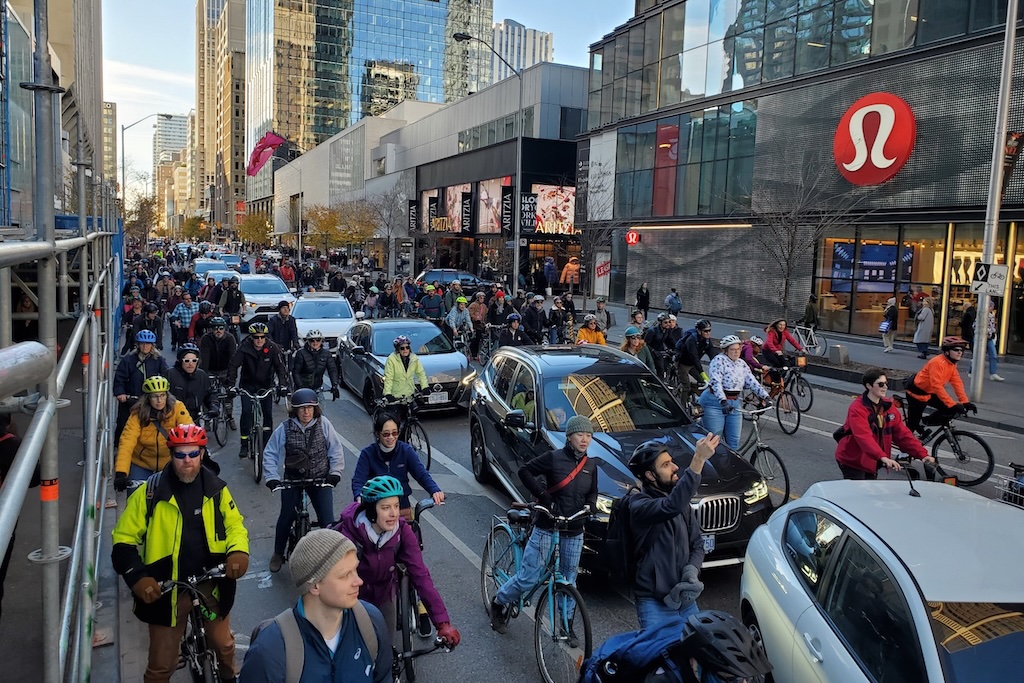Cycle Toronto, a prominent cycling advocacy group, along with cyclists Eva Stranger-Ross and Narada Kiondo, has launched a legal challenge against Ontario’s Bill 212, which grants the provincial government authority over the installation and removal of municipal bike lanes.
The challenge, filed on Wednesday, argues that the legislation violates cyclists’ rights to life and security under the Canadian Charter of Rights and Freedoms. Represented by Ecojustice and Paliare Roland LLP, the group claims that the law undermines the safety of cyclists and erodes municipal autonomy in urban planning decisions.
Concerns Over Safety and Public Consultation
Bill 212, passed in November, allows Ontario’s provincial government to bypass municipal approval processes to regulate bike lanes, a move critics argue compromises public safety. Advocacy groups insist that bike lanes are critical for protecting cyclists in cities like Toronto, where traffic poses significant risks. The legislation’s ability to facilitate the abrupt removal of bike lanes without public consultation is viewed as a direct threat to the safety and security of cyclists, violating Section 7 of the Canadian Charter. According to the challengers, bike lanes save lives, and their removal, without alternative solutions, undermines sustainable and safe transportation practices.

Bronwyn Roe, a lawyer with Ecojustice representing the challengers, called Bill 212 “arbitrary and dangerous,” citing studies that show the life-saving benefits of bike lanes. The challengers argue that removing bike lanes without clear evidence of benefits or replacement options locks communities into a cycle of car dependency, which is detrimental to public safety and environmental goals. The group views the legislation as a serious overreach of provincial power, potentially sacrificing cyclists’ lives for the sake of vehicular traffic flow.
Provincial Justification and Broader Implications
Ontario Premier Doug Ford and supporters of Bill 212 argue that the law streamlines decision-making and addresses traffic concerns in urban areas where bike lanes are perceived to hinder vehicular flow. However, critics, including the cycling group, see it as part of a broader trend of provincial encroachment on municipal affairs. They stress that bike lanes are essential public health infrastructure, especially as cycling grows in popularity. The legal challenge is part of a larger debate on urban planning, public safety, and environmental sustainability in Ontario.
The challenge against Bill 212 coincides with ongoing disputes over provincial legislation in Ontario, including legal battles concerning housing developments on protected lands and the use of the “notwithstanding clause” to override Charter protections. The controversy also unfolds as Toronto advances its Vision Zero strategy, aiming to eliminate traffic-related fatalities. These legal and policy debates reflect increasing tensions between provincial and municipal authorities, raising questions about governance and public safety priorities in Ontario.

